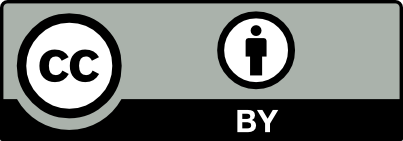Analysis of the regulatory scenario for the renewal of registration of generic and similar drugs at the National Health Surveillance Agency: subsidy to the health regulation of post-registration of drugs
DOI:
https://doi.org/10.22239/2317-269X.01323Keywords:
Renewal of Registration, Health Legislation, Automatic revalidation, Product Registration, Medicines, Brazilian Health Regulatory AgencyAbstract
Introduction: The publication of the Resolution of the Collegiate Directorate of the Brazilian Health Regulatory Agency (Anvisa) Nº. 200, of December 26, 2017, made the analysis of petitions for renewing the registration of medicines would become a lesser activity complexity. However, the number of automatic registration revalidations remains expressive. In addition, rejections of these petitions continue to occur. Objective: Characterize the outcomes of the analyzes of these renewals and quantify the number of automatic renewals of registration of generic and similar drugs. Method: Retrospective analysis of requests for renewal of registration of generic drugs and similar procedures processed by the General Office of Medicines and Biological Products (GGMED) Anvisa, from January 2017 to August 2018. The information was obtained in the system Datavisa, from Anvisa, after GGMED and the Coordination of Institutional Security (CSEGI) authorized access. Results: In the period from January 2017 to August 2018 processed through GGMED 1,450 requests for renewal of medication registration generics and the like. A considerable percentage of automatic revalidations was observed medication registration, since 378 (26,0%) petitions among those processed by GGMED in the study period were automatically revalidated. An expressive portion was found of medicinal products belonging to the similar category, 247 petitions, corresponding to 65,0% of the 378 petitions renewed automatically. In the set of analyzed and rejected petitions, the main reasons for rejections were related with technical-administrative reasons (36 petitions, out of 51 rejected). Conclusions: The automatic registration revalidations, which should be an exception possibly if became the rule. Fact that brings concern from the health point of view.
Downloads
Downloads
Published
Issue
Section
License
Copyright (c) 2020 Health Surveillance under Debate: Society, Science & Technology (Vigilância Sanitária em Debate: Sociedade, Ciência & Tecnología) – “Visa em Debate”

This work is licensed under a Creative Commons Attribution-NonCommercial-NoDerivatives 4.0 International License.
COPYRIGHT ALLOWANCE The author (s) hereinafter designated as the ASSIGNOR hereby assign and transfer, free of charge, the ownership of the copyrights related to this ARTICLE to the Vigilância Sanitária em Debate: Sociedade, Ciência & Tecnologia (Health Surveillance under Debate: Society, Science & Technology) – Visa em Debate, represented by FUNDAÇÃO OSWALDO CRUZ, established at Av. Brasil, nº 4365, Manguinhos, Rio de Janeiro, RJ, Brazil, CEP 21045-900, under the conditions set out below: (a) The terms and conditions set forth in this Agreement shall apply to the following: 1. The ASSIGNOR declares that they s(he) is (are) the author (s) and owner (s) of the copyrighted property of the ARTICLE submitted. 2. The ASSIGNOR declares that the ARTICLE does not infringe the copyrights and / or other property rights of third parties, that the disclosure of images (if any) has been authorized and that they s(he) assume(s) full moral and / or property liability for its content, before third parties. 3. THE ASSIGNOR assigns and transfers all copyrights relating to the ARTICLE to the ASSIGNEE, especially the rights of editing, publication, translation into another language and reproduction by any process or technique. The ASSIGNEE becomes the exclusive owner of the rights related to the ARTICLE, and any reproduction, totally or partially, is prohibited in any other means of publicity, printed or electronic, without prior written authorization from the ASSIGNEE. 4. The assignment is free and, therefore, there will be no remuneration for the use of the ARTICLE by the ASSIGNEE.







